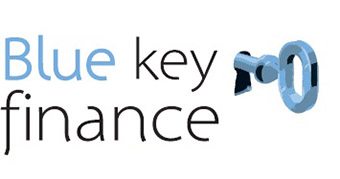Invest through an SMSF – five most asked questions
Q How much do I need to have in my super fund to use it to invest in property?
This depends on the property asset. If your self managed super fund (SMSF) wants to invest directly into a property, the capital requirements are high. For direct property the amount of money required depends on the price and whether the investment will be geared or bought off the plan. Either way you will need to have money for the deposit, usually from 20-30%, the stamp duty (if applicable) and legal fees and charges. Then if the property requires initial repairs or renovations, your SMSF must have the liquid funds to cover these expenses.
Q What fees are involved in buying a property through my SMSF? Will it cost more than buying outside super?
If you don’t already have a SMSF you need to consider the establishment costs and ongoing compliance costs, along with adhering to annual complinace and administration obligations that include the preapration of financial statements, a tax return and audit. These costs can very depending on the complexity of the fund and the service level provided by the SMSF administrator you choose. On average, estbalishment of an SMSF with a corporate trustee and no financial advice shouldn’t ost you more than $2,000, including a $479 ASIC incorporation fee. Ongoing administration fees including an audit can range from $2,000 – $5,000 a year. There are cheaper alternatives but you get what you pay for, so make sure their service offering is right for you, your understanding of SMSF rules, what you have in your SMSF and its level of complexity.
If you are able to purchase a property outright in your SMSF, without the need for borrowings, then really the only cost difference when comparing with doing the same outside super is the ongoing compliance costs of running the SMSF and the tax implacations down the track.
However, if you require finance to complete the purchase of a property, then you will find it a more expensive exercise than doing so outside super.
The only way an SMSF can borrow is via a limited recourse borrowing arrangement (LRBA). This involves the creation of additional legal entities (a trust and corporate trustee) that then hold the property on trust for the super fund wheile there is a mortgage in place. These costs are similar to those of setting up an SMSF with a corporate trustee.
Obtaining finance for your SMSF is much tougher than applying for an investment loan personally. As well, interest rates are generally higher for an SMSF due to the “limited recourse” nature of the borrowing arrangement.
There can be additional bank fees and charges given the specialised nature of the borrowing, and the banks may also require you to obtain verification from alicensed financial adviser that borrowing to purchase property is a suitable and viable option for you and your SMSF – this can cost an additional couple of thousand dollars.
Stamp duty is applicable, as with any property dealing. However, if the paperwork involved in setting up the custodian trust to hold the property for the SMSF and the purchase contract is not dealt with properly, you may be up for additional unnecessary stamp duty.
The moral of the story is, it will cost you more in an SMSF. So spend the money on good advice and experiences specialists to assist you with the process because cutting costs here may result in unnecessary costs later due to failing to set up the arrangement correctly from the start.
Q Are SMSF property loans different from normal loans?
SMSF loans for commercial and/or residential property share many factors in common with other residential and commercial lending. However, there are also very significant differences, making the product a challenge for providers to deliver, restricting availability to a narrow group of borrowers and consequently adding to the cost.
Lending is non-recourse – the lender cannot touch superannuation assets beyond the loan security. This requires a higher minimum deposit (typically 30%), a guarantee from the trustees and complex credit assessment and documentation.
Lending is available for genuine investment purposes only, including funding of your business premises, but must comply with related party, private usage and other restrictions of superannuation.
Also this means it comes at a greater costs. Loan set up costs paid to your Solicitor and to the Bank will be significant, and the average advertised variable rate for SMSF loans against residential security is 6.34%.
SMSF borrowings comes with challenges.
Q Which institutions offer SMSF loans and what are the best products?
To name a few: AMP Bank, Bank of Melbourne, Commonwealth Bank, La Trobe, Liberty, Macquarie, St George, and Westpac.
This is quite a contrast to the 100-plus home loan lenders and reflects the small market for SMSF loans and the degree of difficulty in providing the loans.
We find Westpac have a great variable rate product backed up with great service.
Q Are there any restrictions on what property I can buy?
You cannot buy a residential investment property from yourself, your spouse or any related party. There are exemptions for properties used 100% for business purposes. If the property is acquired at less than market value, the difference between the market value and the amount actually paid should be recorded as a contribution.
If you are borrowing to buy a property then it must be a “single acquirable asset”, which means it must all be on one title in one contract. Many packages are divided in separate land and the building contracts will not qualify, but developers are now adapting some house and land contracts to meet this requirement. The same may apply where you buy a unit and it comes with a car space or garage on a different title.




Leave a Reply
Want to join the discussion?Feel free to contribute!